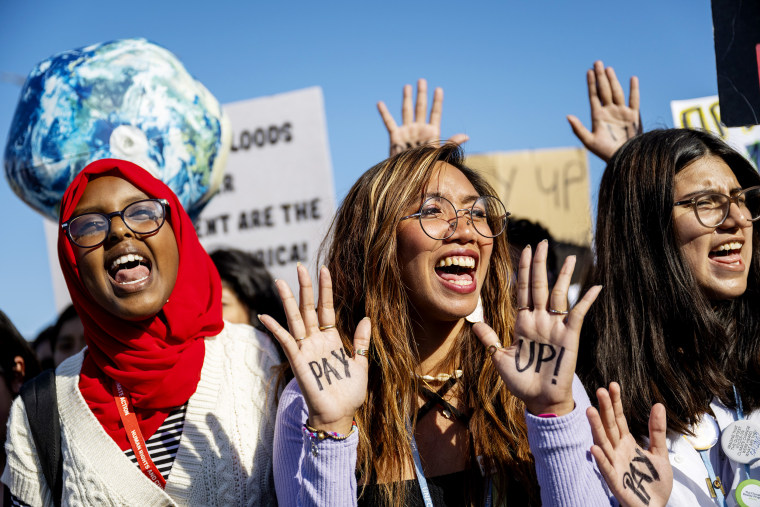Leaders of wealthy, industrialized countries — some of the world's biggest polluters — agreed on Sunday to create a fund to help poorer nations combat the effects of climate change.
The agreement was negotiated at COP27, the United Nations’ annual climate conference, held in Egypt. It follows years of activist work from human rights experts who’ve noted how highly industrialized nations and major players in the world economy (like the United States, the United Kingdom and Germany) have accelerated climate change that disproportionately impacts poorer nations, worsening inequality to the immense benefit of rich countries.
The agreement to form a "loss and damages" fund is a big step in terms of holding drivers of climate change accountable for their behaviors.
Ahead of Sunday’s announcement, the U.S. was known to be a key holdout preventing the authorization of what’s known as a “loss and damages” fund for developing nations. This led activists worldwide to condemn the U.S. for playing a “deeply obstructive” role in the negotiations.
On Saturday, though, Reuters announced United States officials were “working to find a way” they could agree to proposals for a “loss and damages” fund. The U.N. announced on Sunday an agreement had been reached.
According to The Guardian, Sameh Shoukry, president of COP27 and Egypt’s foreign minister, praised the agreement:
“We rose to the occasion. We worked around the clock, day and night, but united in working for one gain, one higher purpose, one common goal. In the end we delivered. We listened to the calls of anguish and despair.”

That sounds great, but Reuters noted a major sticking point in the ongoing negotiations about what the fund would actually look like: Who’s going to fund it?
The agreement to form a "loss and damages" fund is a big step in terms of holding drivers of climate change accountable for their behaviors. It's apparently going to take some more international pressure to get these countries to actually pay up.
It’s worth noting that India and China — consistently ranked as two of the top polluting nations — are not considered developed countries by the U.N. and have not agreed to contribute to the fund. The U.S. and the European Union are pushing for China to agree to eventually pay into the fund and are seeking guarantees that it will not be able to collect money from it, reported The New York Times.
I should add here that this kind of reparative action may be instructional for Americans, too. Writing for The ReidOut Blog last year, I discussed how domestic policies in the U.S. have subjected marginalized communities — particularly, Black and brown communities — to disproportionate risk of facing climate catastrophes, like displacement. The U.N.'s "loss and damages" fund, assuming it's run effectively, could ultimately be a model for U.S. climate activists to follow.
